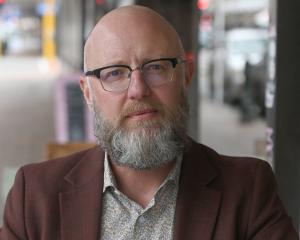
Mental Health Minister Matt Doocey earlier this week announced the latest Suicide Prevention Action Plan from Te Rau Ora, a Māori-focused mental health and addiction organisation.
He said in 2024, 617 people died in suspected suicides.
"New Zealand continues to face stubbornly high suicide rates — behind that number are grieving families, friends, colleagues and communities."
The plan includes 21 health-led new actions and 13 cross-agency new actions, with the overall aim of improving access to suicide prevention and postvention supports, grow a workforce that was able to support those at risk of — or affected by — suicide, and to strengthen focus on prevention and early intervention.
Life Matters Suicide Prevention Trust co-general manager Clare Curran said on the face of it, the plan was comprehensive.
However, she said the trust questioned whether the goals of the plan would achieve the objectives laid out.
"What is needed is a bigger workforce across the country working on suicide prevention and directly working to support people in suicidal crisis."
Actions proposed included strengthening suicide prevention training and guidance to existing resources, publishing a national competency-based framework and providing guidance for health professionals.
"We fear that this part of the strategy may not be sufficient to achieve the objectives," she said.
There was no doubt that peer-led services build more trust in mental health services, and provided ongoing support to people in mental distress and in a suicide crisis, she said.

Ms Curran said the plan covered a lot of what was raised in the consultation phase.
"The new health-led actions are positive developments although some of them, such as the ‘Peers in ED’ and ‘Crisis Cafes’ projects have previously been announced.
"These are welcome initiatives and will make a difference across New Zealand once they are all operational."
The plan did acknowledge one of the biggest barriers to support — a trained workforce.
"The plan includes initiatives that will grow our workforce, such as by expanding suicide prevention training and strengthening existing resources to better equip workforces, communities and families," Mr Doocey said.
The first action included was establishing a suicide prevention community fund by the end of this year that would focus on populations with "higher rates of suicidal distress" to go along with funds already available for Māori and Pacific people that are affected.
Another action was to introduce community designed "recovery cafes" or hubs, so people did not have to resort to going to an ED for help.
By October this year, the plan would look to establish peer support roles in eight emergency departments for people presenting to hospital with mental health and addiction needs.
"I am particularly proud that this plan is grounded in lived experience," Mr Doocey said.












